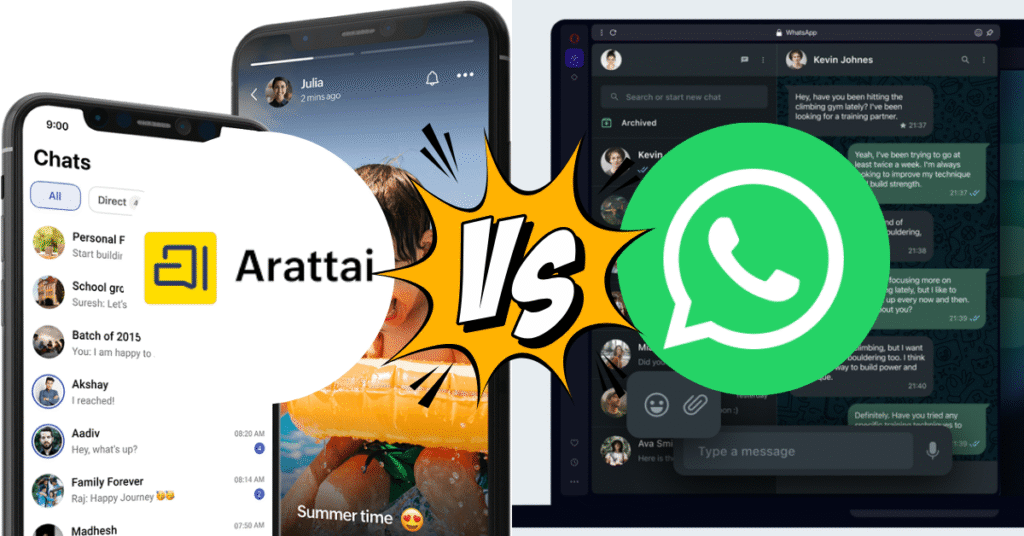India’s messaging landscape is seeing a fresh challenger: Arattai, a homegrown messaging app by Zoho, is gaining momentum amid growing interest in digital sovereignty. But how does it stack up against established giant WhatsApp? Here’s a breakdown.
Feature Comparison
- Core Messaging & Media Sharing: Both apps offer one-to-one chat, groups, voice notes, media sharing, and stories/channels.
- Voice & Video Calls: Arattai supports high-quality voice and video calls, optimized for low bandwidth, with end-to-end encryption for calls. WhatsApp encrypts calls and texts.
- Encryption & Privacy: Arattai applies end-to-end encryption to voice and video calls, but not yet for text messages — a gap for privacy-focused users. WhatsApp offers end-to-end encryption for all messages and media by default.
- Data Sovereignty and Monetization: Arattai stores user data in India, uses Zoho’s infrastructure, and follows a no-ads, no-data-selling model. WhatsApp, although encrypted, is part of the Meta ecosystem and faces scrutiny on its data policies and metadata use.
User Reach & Momentum
WhatsApp is entrenched — billions of users globally, with deep penetration across India’s digital fabric. Arattai, meanwhile, has surged in downloads, briefly topping India’s app store charts amid a wave of local support and visibility.
Choosing Between Them
For users prioritizing privacy, local control, and civilian support for domestic tech, Arattai presents a compelling alternative — especially if full text encryption arrives soon. For those who value robust encryption, network effects, and mature features, WhatsApp remains a go-to.
The future will depend on whether Arattai can bridge its remaining encryption gaps, scale its user base, and sustain trust in India’s messaging ecosystem.
Stay curious. Stay ambitious. Stay connected with StartupStoryindia

